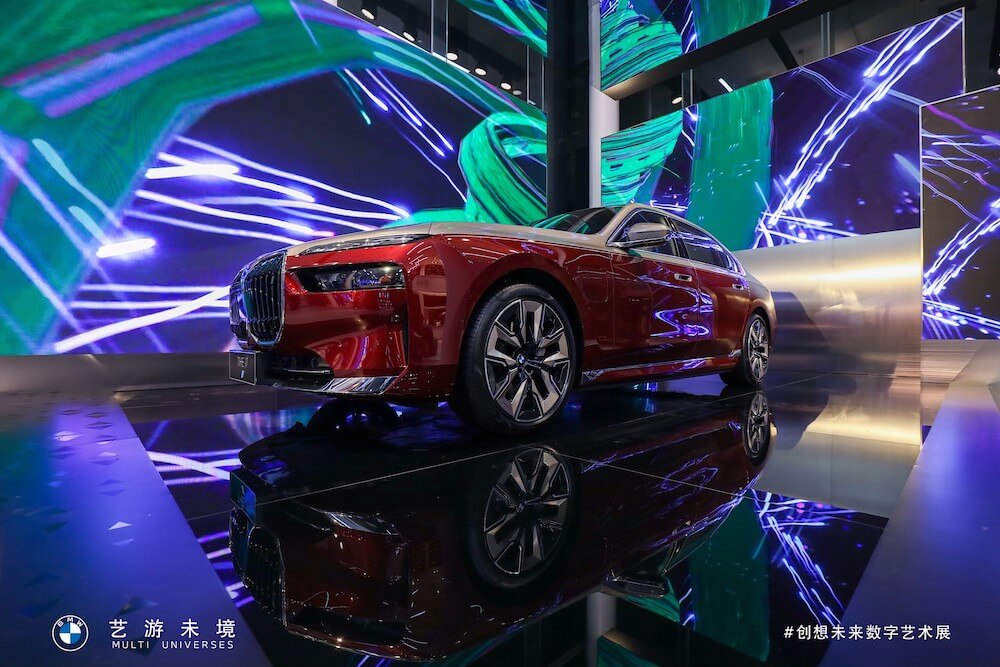
Event Marketing 101: Experiential Marketing and Event Marketing | Pico – Global Experiential Event Marketing Agency
What is an experiential event?
Experiential events are evolved from traditional events, which can create a memorable and immersive experience for attendees. In traditional events, we would focus on providing information or entertainment in a passive format. However, experiential events can take many forms, from product launches and pop-up shops to festivals and brand activations, which enable brands to create a unique and memorable experience that attendees will associate with the brand or product being promoted.
To achieve this, we often integrate elements such as interactive exhibits, live performances, virtual reality experiences, and hands-on activities in the experiential events. The goal is to create an environment that stimulates the senses and encourages attendees to engage with the brand or product in a more meaningful way.
Experiential marketing focuses on creating immersive and memorable brand experiences for customers in events. Experiential marketing is becoming increasingly important in today's business landscape. Creating memorable and engaging experiences in Experiential Event can help brands stand out from the competition and create a strong emotional connection with customers.
Experiential Event marketing is a powerful tool for brands looking to create lasting impressions and build strong emotional connections with their customers. Check out some examples of Experiential Event!


Visitors experienced the cars as they were meant to be experienced – on the road, in a variety of dynamic scenarios. In addition to the driving experience, the event featured a choice of fun off-track activities for all ages, ranging from making a succulent arrangement and badge embossing to handicraft workshops using recycled basketball and a children’s colouring workshop.


A highlight of the exhibition was ‘Quantum Garden’, a large-scale digital installation that invited visitors to experience the sensation of being inside the car’s cabin, immersed in its fusion of technology and art whilst how considering human-technology interaction will transform our lives.
How to create a successful experiential event?
Successful experiential marketing campaigns often involve creating unique and immersive experiences that engage customers' senses and emotions in Experiential Event. By creating a lasting impression and emotional connection with customers, brands can drive increased awareness, loyalty, and sales.
Related Article: The Essential Guide to Brand Activation Strategy in 2024
Why global brands and companies need to employ an Experiential Event Agency or Experiential Creative Agency for your events?
- Expertise and Experience
- Experiential Events Agency can create unique and engaging experiences for event attendees. They have a deep understanding of the latest trends of Experiential Events, event technologies, and best practices in experiential marketing and can help companies create an experiential event that stands out and resonates with your target audience.
- Creativity and Innovation
- Experiential Creative agencies can leverage their creativity and innovation in creating memorable event experiences. They can help you come up with new and exciting event ideas that will capture the imagination of your event attendees.
- Logistics and Planning
- Experiential event agencies can help you manage the event logistics and event planning, from securing the event venue and coordinating vendors to managing the setup and teardown. They can also help you manage the event timelines and schedules of your event to ensure that everything runs smoothly and on time.
- Measurable Results
- Experiential event agencies can help you measure the results of your event and track the return on investment. This can help you assess the success of your event and make data-driven decisions about future events.
By leveraging the specialized expertise and experience of an agency, you can create an event that resonates with your target audience and drives business success.
Steps on creating an experiential event:
- Define the Objectives of Experiential Event
- By setting clear objectives, you can create an event that is focused and aligned with your goals. There are a few questions for you to clarify your objectives. First, who is your target audience? Second, what kind of experience do they enjoy most? Last, what kind of outcomes do you expect?
- Find an Experiential Event Agency
- Creating an experiential event is not an easy task. Employing an experiential event agency can help you create a more engaging and memorable experience for your attendees, while also utilizing your resources and achieving desirable results.
- Brainstorm Experiential Event Creative Concepts
- Brainstorm creative concepts that align with your goals and audience. Consider how you can engage all the senses and create an immersive experience that will leave a lasting impression.
- Develop Your Creative Concept
- Consider how you can incorporate technology, interactive elements, and storytelling to create a memorable experience. The focus of the creative concept is "Experience goes first".
- Plan Your Logistics of Experiential Event
- This includes securing a venue, arranging for permits and licenses, coordinating vendors, and managing the setup and teardown of your event.
- Execute Your Experiential Event
- Be prepared to handle any unexpected issues that may arise and make sure your team is available to address any questions or concerns from attendees.
- Measure the Results of Experiential Event
- After your event, measure the results to determine its success and identify areas for improvement. This includes tracking attendance, engagement, and feedback from attendees. Analyze the data to assess the effectiveness of your event and identify opportunities to optimize future events.
- Follow Up with Attendees
- Follow up with attendees after the event to thank them for attending and gather feedback on their experience.
Creating an experiential event requires careful planning and execution, as well as a focus on engaging all the senses and creating a memorable experience for attendees. By following these steps, you can create an event that resonates with your audience and achieves your business objectives.
Act now and contact Pico Experiential Event Team to learn more how we can craft an integrated brand experience for you.